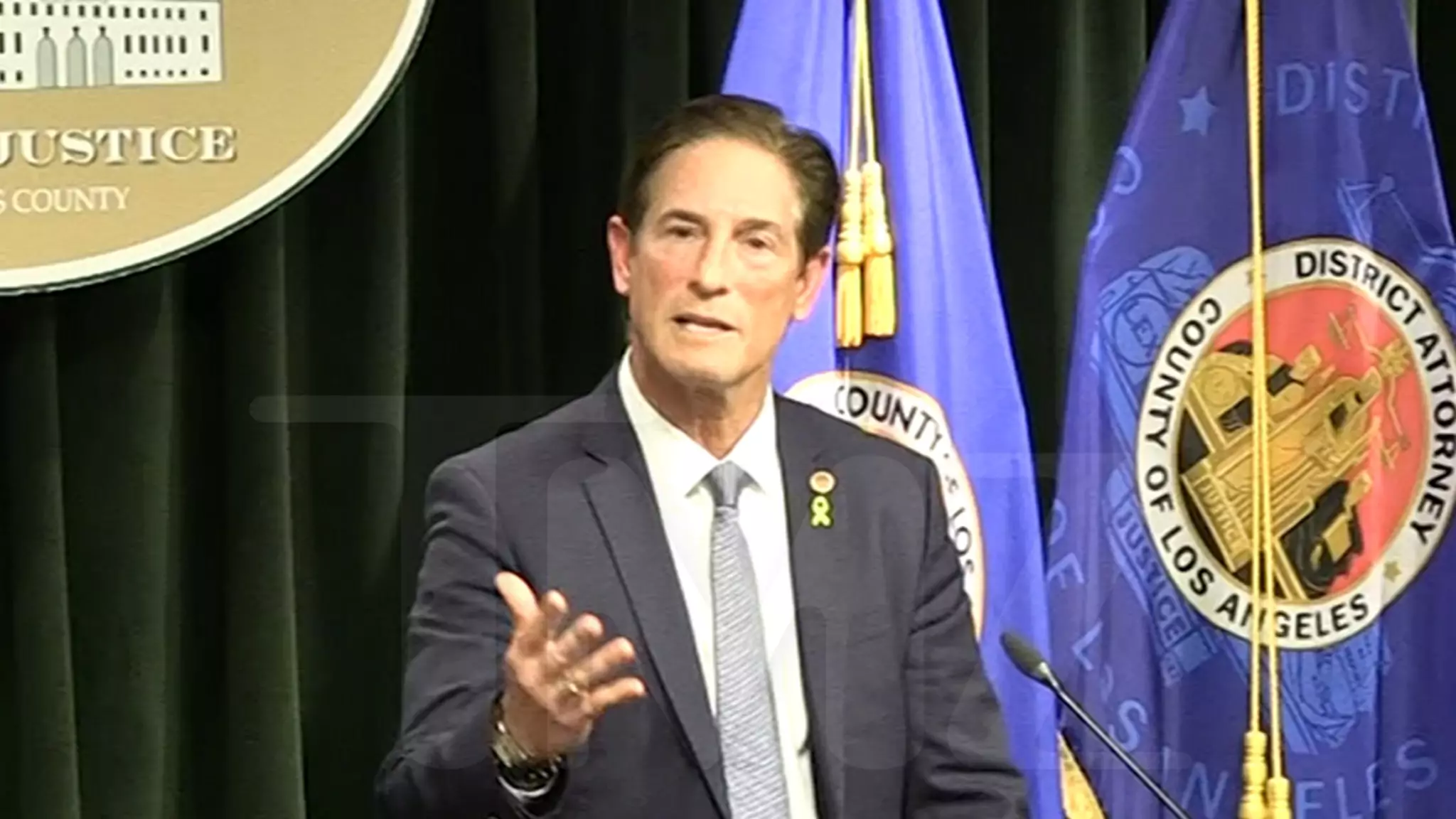The recent meeting between Nathan Hochman, the new Los Angeles County District Attorney, and the family of Erik and Lyle Menendez has generated significant speculation, yet little public information. Hochman, while acknowledging the meeting was “productive,” has refrained from discussing any details about the conversations he had with family members. This silence raises numerous questions regarding the potential implications for the Menendez brothers’ case, which has remained infamous since their 1989 conviction for the murders of their parents.
The Menendez family is not a monolith; their perspectives vary dramatically. Significant numbers of relatives wish to see Erik and Lyle released, advocating for their rehabilitation over the decades spent in prison. However, Hochman emphasizes the importance of weighing the narratives of individual family members rather than simply considering the majority viewpoint. This nuanced approach highlights the complex emotions surrounding the case. To truly understand the dynamics at play, one must consider both the potential impacts of their release and the gravity of the original crimes—a duality that remains challenging for many to reconcile.
In the long-standing struggle for justice for Erik and Lyle, the ‘Justice for Erik and Lyle Coalition’ has emerged as a central player. This advocacy group aims to garner public and legal support for the brothers, focusing on their rehabilitation during over three decades of incarceration. Such grassroots movements shed light on a crucial aspect of the justice system—how identities can evolve and the opportunities for individuals to change. While the coalition’s efforts hint at a societal shift towards rehabilitation over retribution, obstacles remain, particularly in light of past political stances regarding the Menendez case.
Hochman’s ascension to the position of District Attorney represents not just a change in leadership but also a potential recalibration of the approach to high-profile cases like that of the Menendez brothers. His predecessor, George Gascón, had shown support for a resentencing—a decision based on the idea that Erik and Lyle had displayed exemplary behavior in a restrictive environment. In contrast, Hochman appears more cautious, taking his time to review the intricacies of the case before making any decisions that could alter the brothers’ fates. This methodical assessment is reflective of a broader, often contentious debate about crime, punishment, and rehabilitation.
As the appropriate timeline for a hearing regarding the brothers’ re-sentencing now stretches to 2025, the landscape surrounding this case remains as fraught as ever. Conversations involving Erik and Lyle’s advocates will undoubtedly continue to shape public perception and influence legal strategies moving forward. The reluctance of the Menendez family members to comment publicly following their recent discussions with Hochman underlines the sensitivity of the situation. As the court dates approach, attention will mount, scrutinizing not just the legal proceedings but also the enduring familial implications of a case that has captivated public interest for over three decades.
The Menendez brothers’ story reflects a broader dialogue about accountability, forgiveness, and the ability of individuals to transform. Hochman’s careful navigation of this legacy may determine not only the futures of Erik and Lyle but also the trajectory of ongoing discussions surrounding criminal justice reform.

